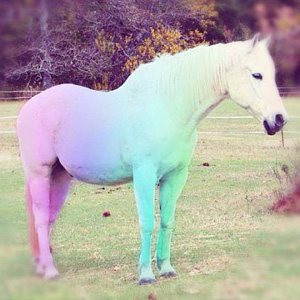I spent the five happiest years of my life in a morgue. As a forensic scientist in the Cleveland coroner’s office I analyzed gunshot residue on hands and clothing, hairs, fibers, paint, glass, DNA, blood and many other forms of trace evidence, as well as crime scenes. Now I'm a certified latent print examiner and CSI for a police department in Florida. I also write a series of forensic suspense novels, turning the day job into fiction. My books have been translated into six languages.
Wow I am sorry I somehow didn't answer this question!! In my experience we do a presumptive test for both and then send to DNA testing because they will confirm the presence of DNA in the quantitative step. We do have the OBTI test for human blood but there's no reason to do it u less we're in a huge hurry to confirm human blood.
I'm sorry but that can, and has, fill several textbooks. There's just no way for me to summarize it in a paragraph.
You can't go wrong with a lot of science classes. When I was in college they didn't have courses specifically in forensic science, so that wasn't an option. And different agencies will have different requirements, so you might want to go online and check out the different vacancies to get some idea of what requirements are out there. You can also call labs you're interested in and ask, that way you get to 'meet' some people too.
Each agency will have their own requirements. The best way to know what to expect is to call all the crime labs in the area and ask what their requirements for various positions are. You can also check websites for forensic organizations such as www.theiai.org and www.aafs.org and examine their job postings. Best of luck!
Sitcom Writer
 Is reality TV here to stay?
Is reality TV here to stay?
Fashion Forecaster
 Are people in the fashion world as rotten as those in Devil Wears Prada?
Are people in the fashion world as rotten as those in Devil Wears Prada?
MBA Student
 Is business school a party compared to law or med school?
Is business school a party compared to law or med school?
Yes, all the time. That's part of my job. But that will depend on what your job is, some people work only in the lab, and others work only at crime scenes.
You can't go wrong with as many science classes as you can get, and especially anything that's specifically forensics. Programs that have hands-on labs for processing evidence and crime scenes would be great. Titles and job requirements aren't uniform, so the only way to know is to call the crime labs in your area or whereever you might be interested in working and ask them. At the coroner's office we had to have at least a bachelor's in a natural science (this was before they had forensic science majors). At the police department where I am now, they only require a high school diploma but you get more points in the interviewing process for having a four year degree, so we all have one. You can also go on the websites for professional organizations such as the American Academy of Forensic Sciences and check out their job vacancy postings and see what the various positions require. Good luck.
Sorry I went to the link but it just loaded forever and I coudn't view the picture.
UPDATE: Hey on a whim I tried the link again and could see the picture. Unfortunately I still couldn't make a guess as to what the pile is. Though in my opinion it looks too light-colored to be a decomposing animal.
-OR-
 Login with Facebook
Login with Facebook (max 20 characters - letters, numbers, and underscores only. Note that your username is private, and you have the option to choose an alias when asking questions or hosting a Q&A.)
(A valid e-mail address is required. Your e-mail will not be shared with anyone.)
(min 5 characters)
By checking this box, you acknowledge that you have read and agree to Jobstr.com’s Terms and Privacy Policy.
-OR-
 Register with Facebook
Register with Facebook(Don't worry: you'll be able to choose an alias when asking questions or hosting a Q&A.)